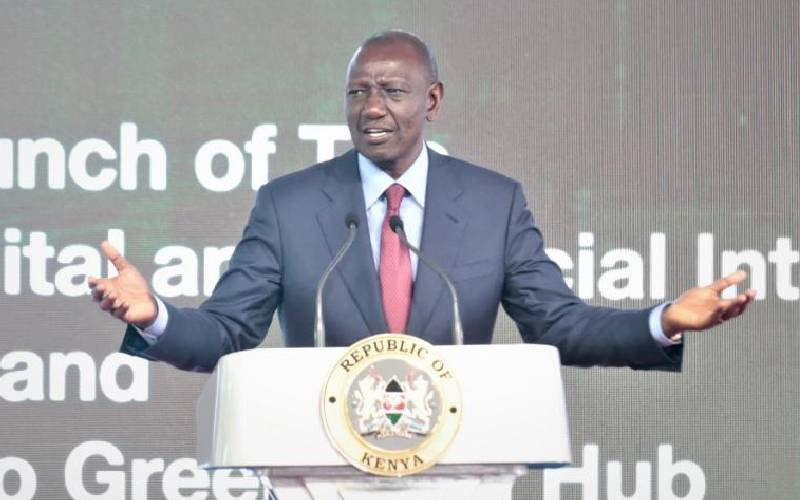
President William Ruto faces a monumental task this year, starting with rebuilding his image, which has suffered due to the abduction of government critics and unfulfilled promises.
He also faces the challenge of crafting a lasting legacy, which could significantly influence his re-election strategy.
Key priorities for 2025 include improving communication to better explain his administration’s policies, addressing the high cost of living, and tackling corruption. These issues will be crucial in 2025, the final “working” year before he embarks on his re-election campaign in 2026.
The Kenya Kwanza administration has been criticized by policy analysts and critics for implementing its programmes in a controversial manner. Among the contentious initiatives are the cancelled Adani-JKIA deal, the Social Health Authority (SHA), and the Affordable Housing scheme, which critics argue is burdening already overtaxed Kenyans.
The proposed mass vaccination of livestock, targeting 22 million cattle and 50 million goats and sheep, has also met resistance from pastoralists and stakeholders such as the Kenya Veterinary Association. Their primary concern is the lack of transparency in the proposed vaccination process.
Analysts argue that while some of these policy interventions may have merit, the lack of transparency in their implementation and the absence of public participation have stoked controversy and speculation.
Policy analyst Leonard Khafafa suggests that the President reconsider his communications strategy. He advises stepping back from being a one-man communications juggernaut and allowing Cabinet Secretaries and other state officials to take on the responsibility of articulating government policies.
“Stepping back will enable him to exercise plausible deniability when necessary, helping him shed the ‘chronic liar’ label that has thus far characterized his presidency. In communications, perception shapes reality,” Khafafa noted.
Political scientist Dr. Kamau Wairuri also points out that President Ruto will face increased scrutiny this year due to the widespread use of technology, which allows many Kenyans to access information and voice their dissatisfaction with the government.
“Social media will be used more than ever before to highlight the shortcomings of the Kenya Kwanza administration. Last year, Kenyans used social media to expose the government, including instances where projects were launched multiple times,” he said.
According to Wairuri, the cases of abductions and extrajudicial killings of government critics have attracted both national and international concern, largely due to the role of social media. He argues that the government’s handling of critics has made it even less popular.
“Since the buck stops with the President, he must ensure his critics are not victimized. He can change the narrative by using social media to directly connect with the public, explaining his programmes and dropping controversial ones. This approach would position social media as a key asset in his re-election strategy,” he added.
Last weekend, the President distanced himself from the abductions and extrajudicial killings, stating that he had taken steps to fulfill his promise of granting financial independence to the National Police Service and removing it from the Office of the President. He urged the police to act to end extrajudicial killings and uphold law and order.
However, another analyst, Jackson Oloo, maintained that the President remains the appointing authority for top security officials and that any wrongdoing associated with the Ministry of Interior and Coordination of National Government can be directly linked to him.
Stay informed. Subscribe to our newsletter
“The National Police Service cannot be fully independent, as it is not a constitutional commission. This means the President can hold police bosses accountable by firing those who are not performing. His statement about the independence of the police service is insufficient to absolve him of responsibility for police excesses,” Oloo asserted.